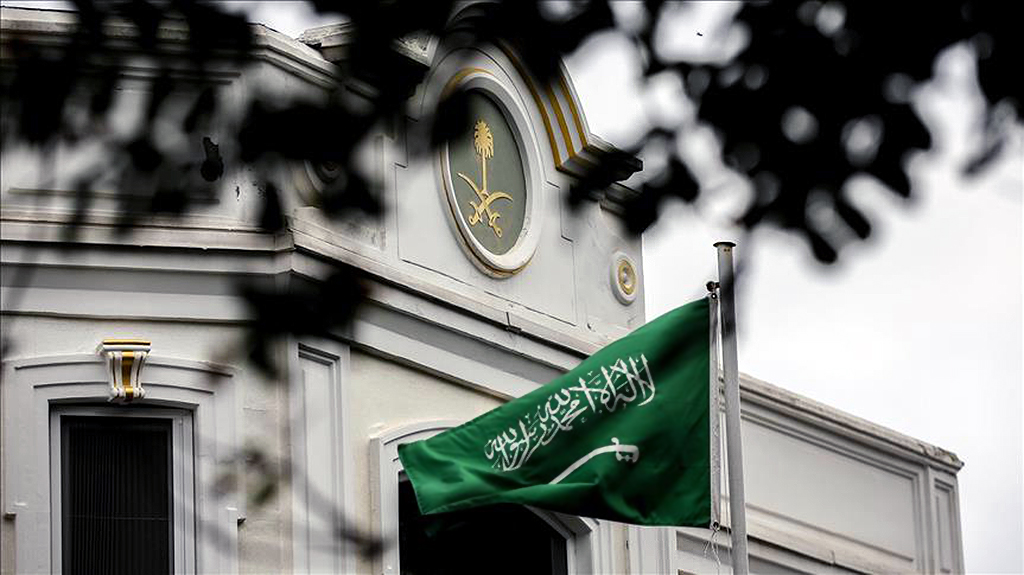
Another story cannot absolve Riyadh
Riyadh has finally admitted that the Saudi journalist Jamal Khashoggi's killing was planned.
Share
Riyadh has finally admitted that the Saudi journalist Jamal Khashoggi's killing was planned. As of Oct. 2, the day when Khashoggi disappeared, Riyadh has frequently changed its arguments and statements on the case. First, they argued that Khashoggi left the consulate a short while after entering and they did not have any information on the incident. Then, they said that he was accidentally killed by a bunch of ill-tempered men during an altercation. And eventually, they admitted that it was a planned murder. Undoubtedly, Riyadh would not have admitted to this had it not been for Turkey's determined and meticulous efforts to illuminate the murder and inform the world with a successful communication strategy. Yet, the location of Khashoggi's body is still not known and the identities of the ones who committed this planned murder have not been disclosed. Besides all this, it is still not clear who ordered the murder.
Turkey persists on answering these questions. To that end, the country has been gradually revealing the information it obtained to shed light on this brutal killing. Considering that President Recep Tayyip Erdoğan said, "We have further information and documents. But Saudi officials are to reveal the names of Khashoggi's murderers in the first place," Riyadh will have to issue additional statements. The world media is focused on who ordered the murder, and all eyes are turned on the Saudi Crown Prince Mohammed bin Salman. As the global pressure of demanding answers continues, Riyadh's room for maneuvering is shrinking. The Saudi officials now have to reveal the names that controlled the hit squad. This case cannot be closed by putting all the blame on the Saudi intelligence deputy chief and his team. The question who ordered the killing still remains the biggest mystery, and answers will be demanded. The last option is to make the perpetrators confess that the crown prince ordered them to catch and interrogate Khashoggi but they committed the murder. We will see what the next story of Riyadh will be.
The international public widely acknowledges that Turkey has successfully managed the process of investigating the Khashoggi murder. Experts agree that Ankara reminded Washington and Middle Eastern actors of its strategic importance. But some comments do not appreciate the effective diplomacy of Ankara. A part of the world media claims that Turkey will make a deal with Saudi Arabia and save the crown prince in return for a number of compromises, while some outlets allege that Erdoğan is targeting the crown prince with motivation to stoke a regional leadership competition. There are even a number of extreme comments which associate the case with neo-Ottoman aspirations.
Ankara's moves in this context cannot be motivated to protect or undermine the crown prince. The efforts are only centered upon revealing the ones responsible for the atrocity. The crown prince's role in this is left to the judgment of the international community and the Saudi people. Disclosing the crown prince's role in the murder is only possible through trying the murderers outside of Saudi Arabia. Riyadh cannot be expected to send the murderers to Turkey for interrogation or accept an international court. Apparently, the inner balances of the Saudi royal family are not yet on a radical position to sideline the crown prince.
It is obvious that the Khashoggi murder has damaged the Saudis' regional design aims that had the crown prince as their centerpiece. Thus, Saudi Arabia-United Arab Emirates (UAE)-Egypt-Israel alliance has suffered a loss of legitimacy. It is not a mere coincidence that the Israeli media has been embracing the crown prince as "the Arab leader we have been expecting to see for 50 years." In fact, today, Riyadh's role in the Palestine and Jerusalem issue is even more volatile than it was.
Meanwhile, Washington has obtained a chance to control the crown prince more easily due to the murder. Riyadh, on the other hand, is in quest of setting a new balance by getting closer with Moscow. Moscow has stepped into the crisis with a $5-billion trade agreement and a Kremlin spokesperson's statement that they were satisfied with Riyadh's explanations regarding the incident.
Russian leader Vladimir Putin is closely following the U.S.' ineffective efforts to redesign the Middle East and is very adept at taking advantage of the gaps emerging as a result of the vain efforts. Currently, Putin is seeking to have influence over Riyadh. Amid this crisis, Turkey has once again proven that it is by far the most legitimate country in the context of the problems Middle East is facing. Being an experienced leader, Erdoğan has been increasing his influence in the regional equation. The recent four-nation summit that gathered to find a political solution to the Syrian civil war constitutes a good example to that.
[Daily Sabah, 28 October 2018]
Tags »
Related Articles






